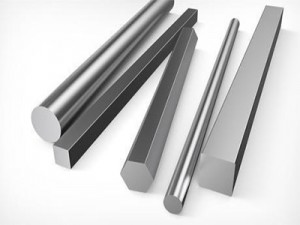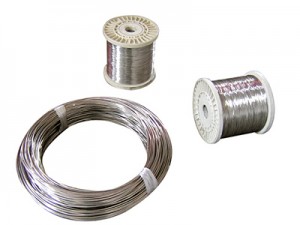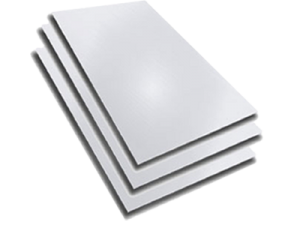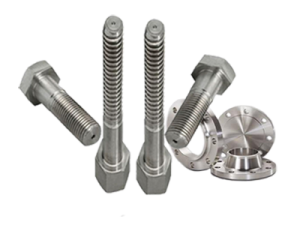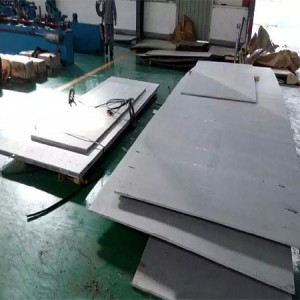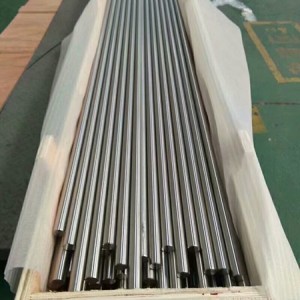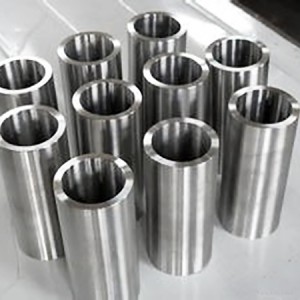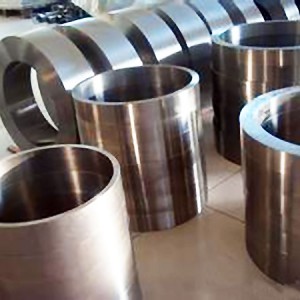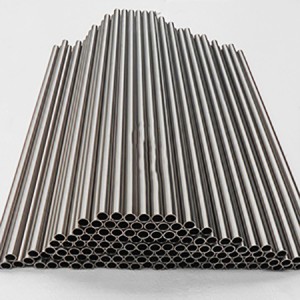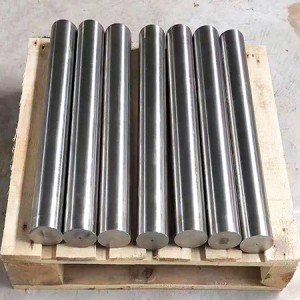Incoloy800/ 800H/800HT manufacture
Incoloy 800(UNS N08800) , Nickel Alloy 800,Inconel 800, W.Nr 1.4876
Incoloy 800H(UNS N08810), Nickel Alloy 800H, Inconel 800H, W.Nr 1.4958
Incoloy 800HT (UNS No8811) Nickel Incoloy 800HT , W.Nr 1.4959
Incoloy Alloy 800 is a widely used structural material for equipment that must have high strength and resist oxidation, carburizing and other harmful effects of high temperature exposure (for high temperature applications requiring optimal creep and fracture properties, use Incoloy Alloy 800H and 800HT).
| Alloy | % | Ni | Cr | Fe | C | Mn | Si | Cu | S | Al | Ti | Al+Ti |
| Incoloy 800 | Min. | 30 | 19 | balance | - | - | - | - | - | 0.15 | 0.15 | 0.3 |
| Max. | 35 | 23 | 0.10 | 1.5 | 1 | 0.75 | 0.015 | 0.60 | 0.60 | 1.2 | ||
| Incoloy 800H | Min. | 30 | 19 | balance | 0.05 | - | - | - | - | 0.15 | 0.15 | 0.3 |
| Max. | 35 | 23 | 0.10 | 1.5 | 1 | 0.75 | 0.015 | 0.60 | 0.60 | 1.2 | ||
| Incoloy 800HT | Min. | 30 | 19 | balance | 0.06 | - | - | - | - | 0.25 | 0.25 | 0.85 |
| Max. | 35 | 23 | 0.10 | 1.5 | 1 | 0.75 | 0.015 | 0.60 | 0.60 | 1.2 |
| Density (g/cm3) |
Melting point (℃ ) |
Elastic modulus ( GPa) |
Thermal conductivity (λ/(W(m•℃)) |
Thermal expansion coefficient ( 24 -100°C)(m/m °C) |
Operating temperature (°C ) |
| 7.94 | 1357-1385 | 196 | 1.28 | 14.2 | -200 ~ +1,100 |
| Alloy | Form | Condition | Ultimate Tensile strength ksi (MPa) |
Yield strengthat 0.2% offset ksi (MPa) |
Elongation in 2″or 4D, percent |
| 800 | Sheet, Plate | Annealed | 85 (586) | 40 (276) | 43 |
| 800 | Sheet, Plate Strip, Bar |
Annealed | 75 (520)* | 30 (205)* | 30* |
| 800H | Sheet, Plate | SHT | 80 (552) | 35 (241) | 47 |
| 800H | Sheet, Plate Strip, Bar |
SHT | 65 (450)* | 25 (170)* | 30* |
Incoloy 800/800H /800HT Standards and Specifications
|
Bar/Rod |
Wire |
Strip/Coil |
Sheet/Plate |
Pipe/Tube |
Fitting |
|
ASTM B 408 & SB 408 |
ASTM B408, AMS 5766, ISO 9723, ISO 9724, BS 3076NA15, BS 3075NA15, EN 10095, VdTüV 412 & 434, AWS A5.11 ENiCrFe-2, AWS A5.14 ERNiCr-3 |
ASTM B 409/B 906, ASME SB 409/SB 906, ASME Code Case 1325, 2339 |
ASTM B409, AMS 5877, BS 3072NA15, BS 3073NA15, VdTüV 412 & 434, DIN 17460, EN 10028-7, EN 10095 |
ASTM B 163/ SB 163 |
ASTM B366 |
Incoloy 800/800H/800HT Available Products in Sekonic Metals
Why Incoloy 800/800H/800HT ?
• Excellent corrosion resistance in the water media of the extremely high temperature of 500℃.
• Good stress corrosion resistance
• Good machining
• High creep strength
• Very good resistance to oxidation
• Good resistance to combustion gases
• Very good resistance to carburization
• Good resistance to nitrogen absorption
• Good structural stability at high temperatures
• Good weldability
Incoloy 800/800H/800HT Application field:
• Ethylene furnace quench boilers • Hydrocarbon cracking
• Valves, fittings and other components exposed to corrosive attack from 1100-1800° F
• Industrial furnaces • Heat-treating equipment
• Chemical and petrochemical processing • Heat exchangers
• Super-heater and re-heaters in power plants • Pressure vessels


